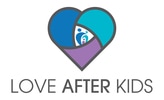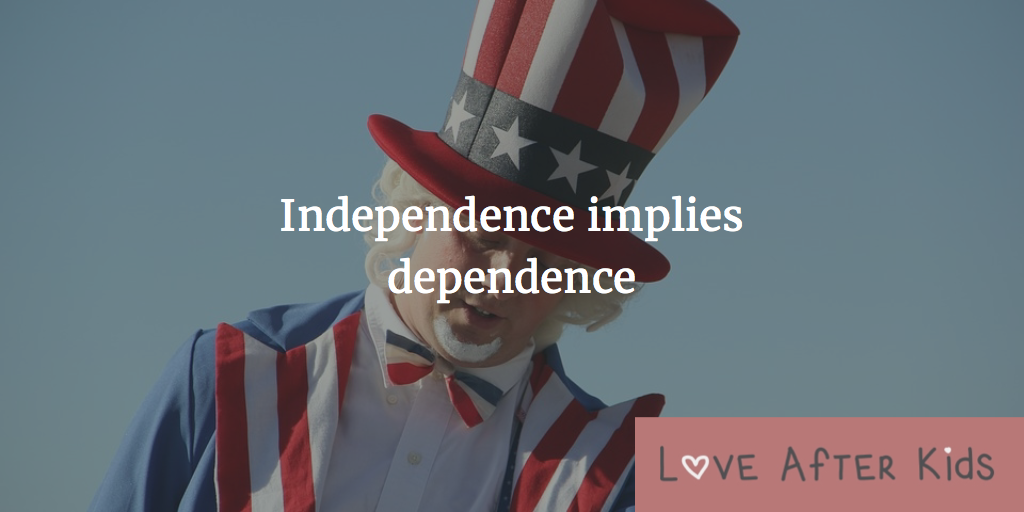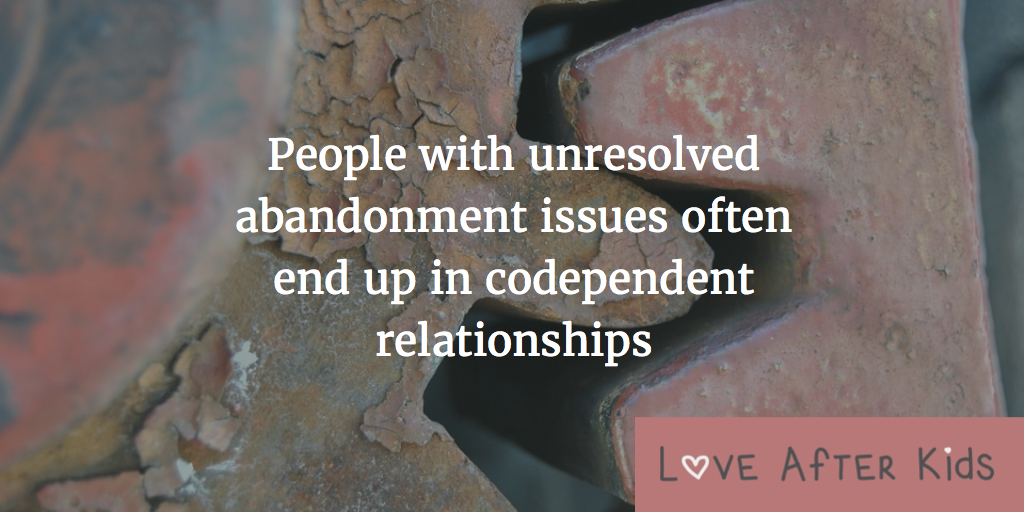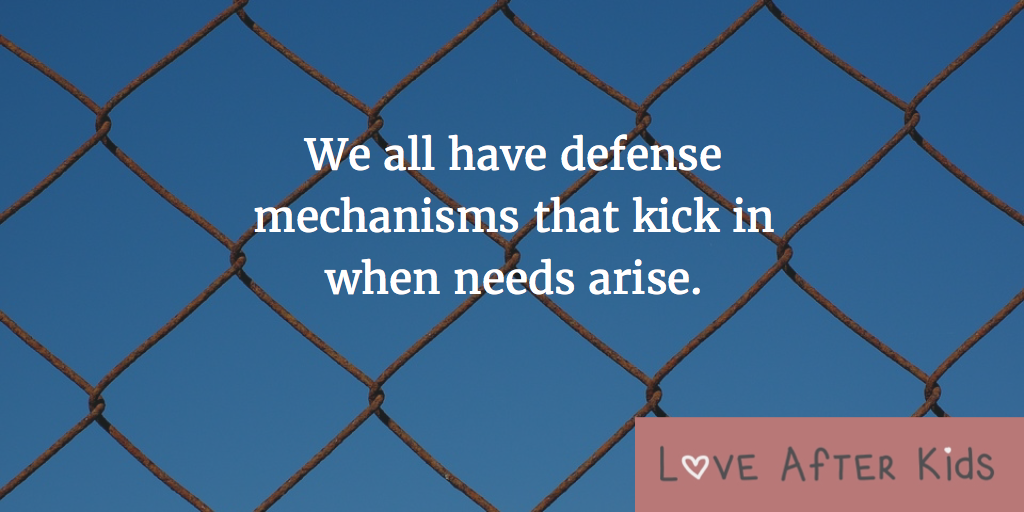not influenced or controlled by others in matters of opinion, conduct, etc.; thinking or acting for oneself:
an independent thinker.
Dependent:
relying on someone or something else for aid, support, etc.
conditioned or determined by something else.
Interdependent:
mutually dependent; depending on each other.
Codependent
of or relating to a relationship in which one person is physically or psychologically addicted, as to alcohol or gambling, and the other person is psychologically dependent on the first in an unhealthy way.
Independence implies dependence, or the ability to depend upon someone. There is no independence if there is no one to depend upon. But the dictionary definition of independent implies something different. It implies what I often refer to in my practice as non-dependence.
Our culture promotes non-dependence. Depending upon others is often associated with shame and weakness. We have become an uber-individualistic society where extended family and community have become less present.
Just as independence and non-dependence are often conflated, dependence and codependence are often conflated. A lot of what is perceived as pejorative in dependence has to do with codependence. Codependence is when there is an unhealthy fusion, when people stay together for the wrong reasons, often to each other's detriments.
It implies addiction, which is why it is also used with respect to alcohol or substance abuse. There is no dependence and independence in co-dependence because there is no separation between the two individuals. There is just one unit. If one person in the unit deviates from the co-dependence, alarm bells will be raised and there will be pressure to return to the status quo.
People with unresolved abandonment issues often end up in codependent relationships as adults. These codependent relationships prevent them from working through their abandonment issues by providing the illusion of unity.
Codependence and non-dependence are opposite sides of the same coin, meaning they are opposite ways of compensating for the same issues related to trust, intimacy and abandonment. One side is to fuse and the other side is never to need.
Dependent would also be folded into the definition of independent going back to what I said earlier about the impossibility of independence without dependence. In relationships, we strive to be able to depend and to be depended upon. We also strive to maintain our own senses of selves and to maintain our own separate interests, goals, ideas and relationships.
This is a complicated dance. It is inevitable that one person in a relationship will be more dependent and one will be more non-dependent. In my relationship with my wife, I am certainly the more non-dependent one. It is much easier for me to be in the role of being depended upon, listening and taking care of others. It is much harder for me to connect to my needs and express them and feel that that is ok.
My wife is a caretaker herself, but it is much easier for her to express her needs. She runs into problems when she goes into manic mama mode and exhausts herself by always focusing on the needs of others. Part of our work together has been to learn how to depend on each other, because these are things we both struggled with in our respective childhoods.
Having a disability has forced me to learn to ask for help. It is one of those lessons from the universe. I don't have the luxury or option of not asking for help anymore. This has been, and continues to be an immense challenge for me, but it has also been an opportunity to face and deal with my own non-dependence issues. It's a work in progress like most things.
It's important to pay attention to feelings and behaviors surrounding dependency because we all have defense mechanisms that reflexively kick in when needs arise. These coping mechanisms are meant to protect us from vulnerability and rejection, but they don't help when it comes to expressing our needs and getting our needs met.
We have to pay attention to our reactions in order to be able to negotiate with these stubborn defenses. We also have to recall Tennyson's words: "Tis better to have loved and lost than never to have loved at all".
You can join the Love After Kids Facebook page here for articles and information related to relationships and parenting and/or click on the button below to sign up to receive new posts and updates in your inbox.




 RSS Feed
RSS Feed